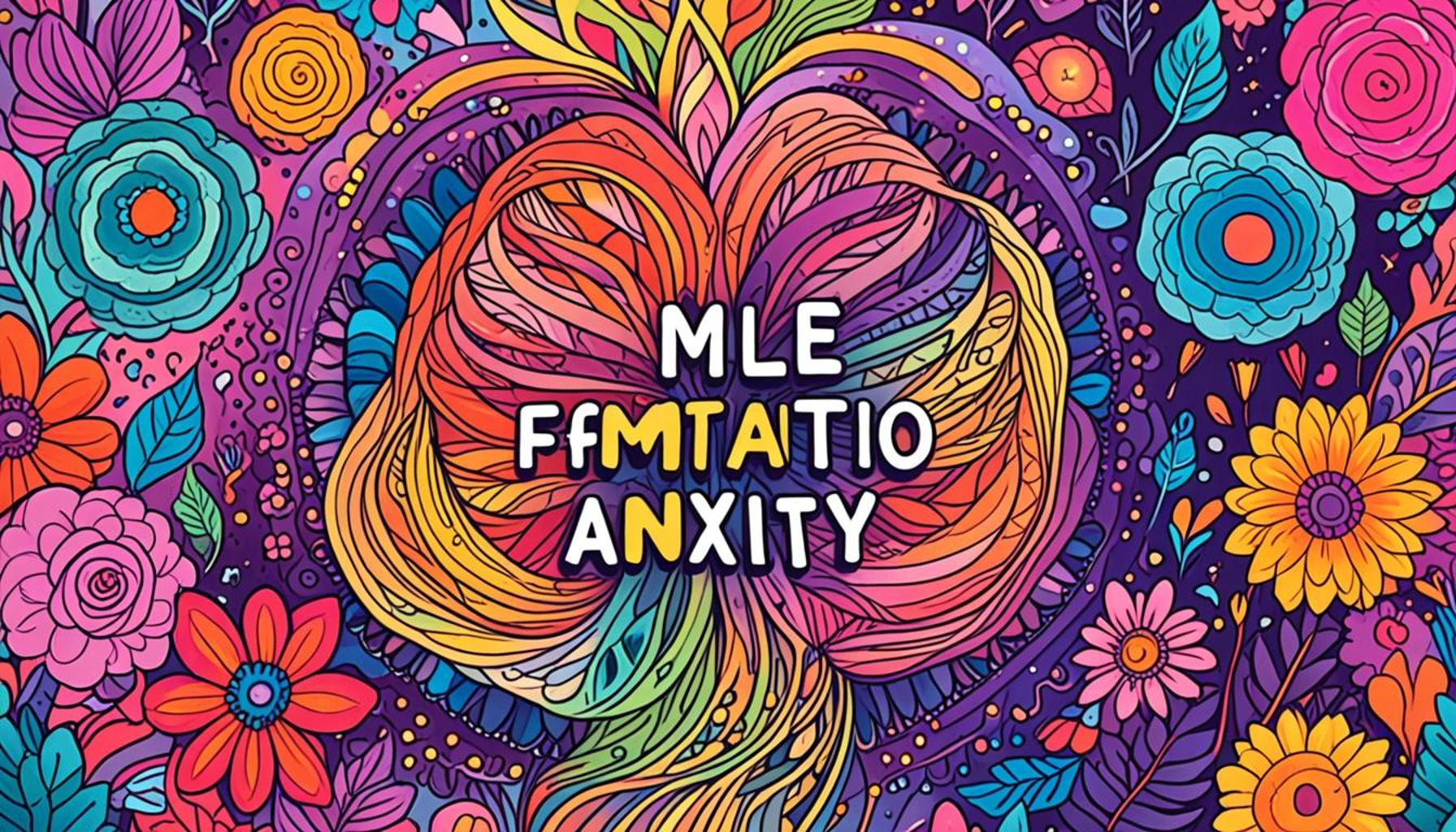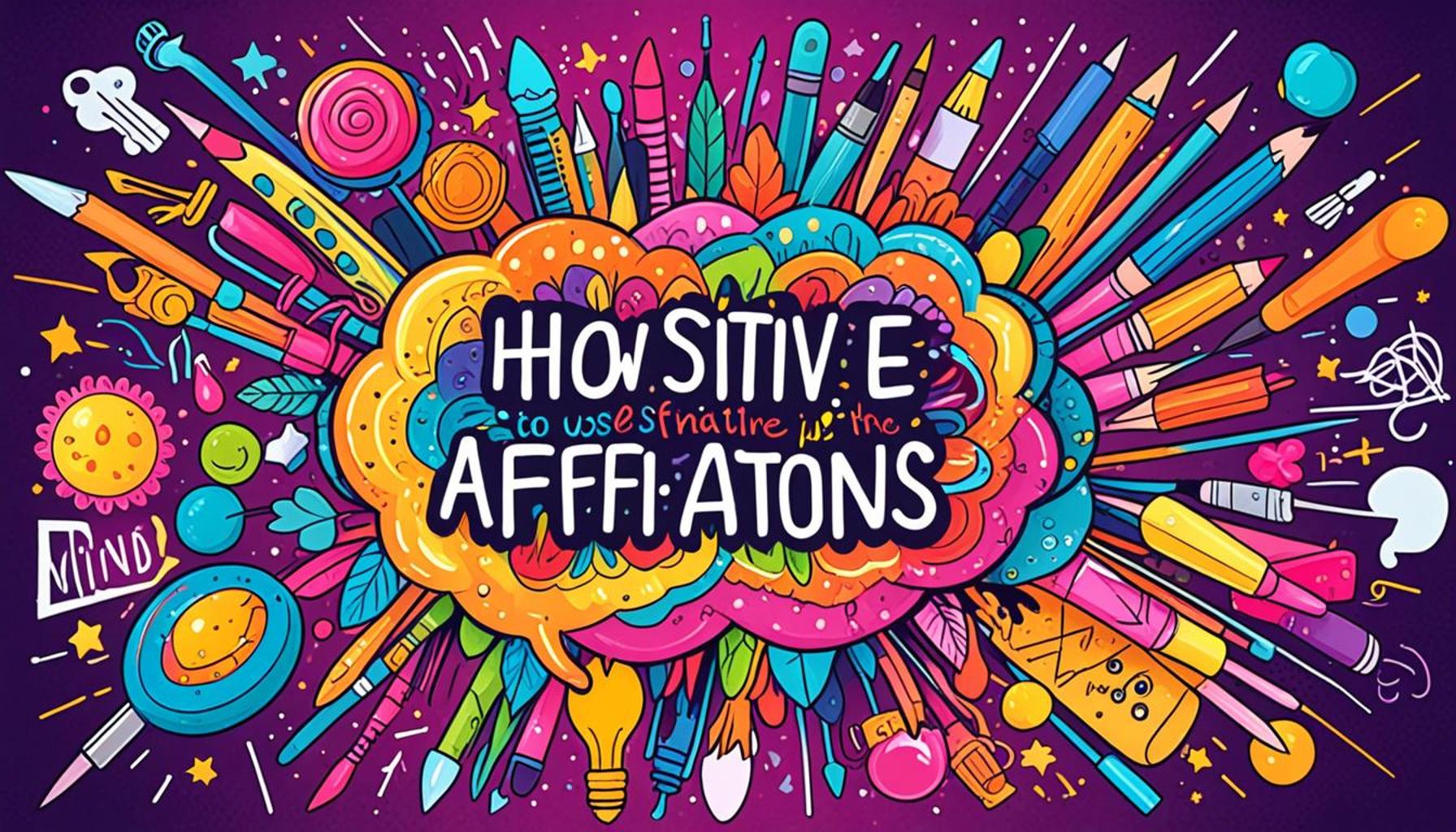The Role of Affirmations in Reducing Anxiety and Promoting Mental Clarity

Understanding Affirmations and Their Impact
In today’s fast-paced world, many individuals find themselves grappling with anxiety and struggling for mental clarity. These psychological challenges can significantly hinder one’s ability to navigate daily life, especially in a diverse and dynamic environment like Nigeria. With the pressures stemming from both economic and social factors, the need for effective coping mechanisms has never been more crucial. One tool that has recently gained attention for its potential effectiveness in bolstering mental well-being is affirmations.
What Are Affirmations?
Affirmations are positive statements that can help reshape your mindset and foster a more constructive way of thinking. They are simple yet powerful declarations focused on self-empowerment and positive outcomes. The purpose of affirmations is to:
- Encourage self-belief: By affirming your abilities and worth, you start to recognize your intrinsic value and potential, which can be particularly uplifting in a challenging environment.
- Reduce negative thoughts: Regularly practicing affirmations helps counteract the waves of negative self-talk that can lead to anxiety, promoting a healthier internal dialogue.
- Boost emotional resilience: Affirmations provide the mental strength necessary to cope with stress and adversity, especially pertinent in the context of Nigeria’s multifaceted social landscape.
When practiced consistently, affirmations can help rewire your thought patterns, making it easier to embrace a positive and proactive orientation towards life’s challenges.
The Benefits of Affirmations
Research indicates that affirmations can play a critical role in improving mental health and emotional well-being. Some notable benefits of incorporating affirmations into your life include:
- Enhanced self-esteem: Affirmations instill a sense of worth, enabling you to approach challenges with confidence, vital in a society where competition can be intense.
- Decreased levels of anxiety: Affirmations can function as a buffer against stress, creating a calmer state of mind and enhancing your ability to focus on productive tasks.
- Improved focus and mental clarity: By eliminating self-doubt, affirmations allow for clearer thinking and decision-making processes, essential skills for navigating complex social and professional landscapes.
For many individuals, especially those navigating challenging economic conditions, the support of affirmations can be essential for maintaining a sense of balance and well-being amid societal pressures.

Exploring the Connection
As we delve deeper into the influence of affirmations on anxiety and clarity, it’s important to explore practical applications. Incorporating positive affirmations into daily routines can pave the way toward a more peaceful and clear-minded existence. For instance, individuals might benefit from setting aside a few quiet moments each morning to recite affirmations related to their personal goals or emotional resilience in the local dialects they use—be it Yoruba, Igbo, or Hausa—making these affirmations resonate more personally.
Another effective method is to integrate affirmations into daily activities, such as writing them down on sticky notes to place around the workspace or home. This visibility serves as a constant reminder of one’s strengths and aspirations. For instance, a small note stating, “I am capable of overcoming challenges,” can be placed where it is frequently seen, thereby reinforcing positive thoughts throughout the day.
In summary, while the challenges of modern life, particularly in Nigeria, can be daunting, the implementation of affirmations provides a practical and accessible approach to enhancing mental clarity and emotional resilience. By consciously engaging with positive statements, individuals can cultivate a mindset that supports not only their own wellbeing but also enhances their interactions with the vibrant tapestry of their community.
RECOMMENDED: Check out this similar article
Transforming Mindsets Through Affirmations
The act of incorporating affirmations into one’s daily routine can fundamentally alter the way a person perceives and reacts to stressful situations. This transformation is particularly relevant in Nigeria, where individuals face unique societal and economic pressures. Through the consistent practice of positive affirmations, individuals can cultivate a sense of calm amidst the turbulence of modern life, thereby achieving greater mental clarity and reduced levels of anxiety.
The Science Behind Affirmations
While affirmations may appear simplistic on the surface, scientific studies reveal their profound impact on our mental frameworks. Numerous psychological theories support the assertion that positive self-statements can lead to favorable changes in behavior and emotional well-being. The Self-affirmation Theory, for instance, posits that individuals can maintain their self-integrity by focusing on their core values and positive attributes, reducing defensive responses to stressors. This scientific basis underscores the effectiveness of affirmations in promoting resilience against anxiety, especially in high-pressure environments like those experienced in Nigerian cities.
Practical Strategies for Effective Affirmation Use
For affirmations to be effective, they must be implemented thoughtfully and consistently. Here are several practical strategies for integrating affirmations into daily life:
- Create a personal affirmation list: Identify key aspects of your life where you seek improvement, whether in your career, relationships, or self-image. Write down specific affirmations that resonate with you, such as “I am capable of achieving my dreams” or “I deserve happiness and success.”
- Practice mindfulness during affirmation sessions: Devote time each day for quiet reflection, allowing yourself to truly internalize these positive statements. This mindfulness enhances the effectiveness of the affirmations and reinforces their messages.
- Utilize local languages: Reciting affirmations in local dialects, such as Yoruba, Hausa, or Igbo, can amplify their emotional connection, making the statements feel more personal and engaging.
- Visual reminders: Place your written affirmations in commonly visited areas, such as on your bathroom mirror or work desk. These frequent encounters serve as powerful reminders for positive reinforcement throughout the day.
By adopting these strategies, individuals can create an environment that nurtures emotional wellness. The discipline of affirmations not only promotes a healthier mindset but also acts as a shield against the burdens of anxiety, thereby clearing the mental fog that often clouds decision-making and clarity.
In a society where communal and personal pressures can converge, the reinforcement of self-worth through affirmations opens a pathway to improved mental health. As people turn towards these positive practices, they can begin to experience a shift in their perspective, ultimately allowing for enhanced interactions and a more fulfilling life amidst Nigeria’s diverse challenges.
The Impact of Affirmations on Anxiety Levels
Affirmations serve as a potent tool in the battle against anxiety, empowering individuals to reshape negative thought patterns. When practiced regularly, affirmations help to cultivate self-acceptance and bolster resilience during challenging times. Research suggests that repeating positive statements can create neural pathways that reinforce a more optimistic outlook on life. These pathways are instrumental in diminishing anxiety and promoting a sense of peace.Furthermore, integrating affirmations into daily routines can lead to observable behavioral changes. For instance, individuals might notice a decrease in avoidance behaviors as they become more confident in facing stressors. This increase in confidence reduces overall anxiety levels, enabling individuals to engage more fully with their surroundings and pursue their goals.
Affirmations and Mental Clarity
In addition to alleviating anxiety, affirmations contribute significantly to achieving mental clarity. By focusing on positive self-statements, individuals learn to filter out negative self-talk and distractions, which often cloud judgment and decision-making. Affirmations promote current thinking and mindfulness, helping to center thoughts and enhance cognitive functioning.The practice of affirmations gives rise to a structured mental environment where clarity thrives. This is particularly beneficial when tackling complex tasks or making significant life decisions. The reduction of mental clutter enables clearer thinking, which enhances problem-solving skills and leads to improved productivity.In summary, the role of affirmations extends beyond mere positivity; they are instrumental in reducing anxiety and fostering mental clarity. By actively engaging in this practice, individuals not only uplift their mood but also sharpen their cognitive abilities, paving the way for a more fulfilling and serene life.
| Advantages of Affirmations | Benefits in Daily Life |
|---|---|
| Reduces Negative Self-Talk | Promotes a positive self-image and decreases feelings of anxiety. |
| Enhances Self-Confidence | Encourages individuals to face challenges proactively and diminishes avoidance behaviors. |
| Improves Mental Clarity | Helps filter distractions and enhance focus on priority tasks. |
| Encourages Mindfulness | Facilitates a centered mindset, thus improving overall cognitive functioning. |
RECOMMENDED: Check out this similar article
Harnessing the Power of Collective Affirmations
Beyond individual practices, the concept of collective affirmations can significantly enhance the effectiveness of positive declarations in reducing anxiety and fostering mental clarity. In many Nigerian communities, the practice of communal gatherings—be it at religious centers, local markets, or cultural events—can serve as a powerful platform for group affirmations. When community members share affirmations together, they not only amplify their positive intentions but also foster a collective sense of support. This group dynamic can dramatically reduce feelings of isolation that often accompany anxiety, creating a supportive environment for individuals to thrive.
Community Engagement and Support Networks
Studies suggest that social support plays a critical role in mental health. By actively participating in group affirmation sessions, individuals cultivate relationships that provide emotional backing and reinforce their collective strength. For instance, groups in urban areas such as Lagos or Abuja can organize weekly meetings where members share their personal affirmations, resulting in shared motivation and encouragement. Social media platforms further facilitate these connections; platforms like WhatsApp can be used to create affirmation groups where members communicate daily positive statements, thus integrating affirmations into their modern lifestyles.
The Role of Creativity in Affirmation Practice
To take affirmations a step further, individuals can engage in creative expressions of their affirmations. Art, music, and writing can offer outlets for individuals to explore their affirmations in deeper and more meaningful ways. In Nigeria, for instance, songwriters could compose lyrics centered around inspirational affirmations, thereby allowing people to sing along and internalize these positive messages. Additionally, graphic design or visual arts can provide vivid illustrations of affirmations, making them more impactful. Many Nigerian youths already engage in such practices, employing local sayings and proverbs that not only affirm positive self-worth but also resonate culturally.
The Long-term Benefits of Affirmations
Research indicates that the consistent practice of positive affirmations can lead to lasting behavioral changes and increased resilience to stress. As individuals continually reinforce their affirmations, they create neural pathways that enhance emotional regulation and cognitive clarity. In a fast-paced society where rapid decision-making is crucial—be it in business or day-to-day life—this emotional clarity becomes a significant asset.
Moreover, the positive effects of affirmations extend beyond immediate anxiety reduction. For Nigerians, who often juggle multiple responsibilities from family obligations to work commitments, the practice of affirmations can lead to improved self-confidence. This self-assuredness fosters better outcomes in various aspects of life, including education, career advancement, and interpersonal relationships. As a result, the worn fabric of societal pressures can be mended through the threads of communal and personal transformation stimulated by positive affirmations.
In summary, the application of affirmations—whether individually or collectively—holds the potential to sculpt a resilient and clear-minded populace in Nigeria. By tapping into the strengths of community, creativity, and consistency in affirmations, individuals can successfully combat anxiety while promoting mental clarity, paving the way for a brighter and more empowered future.
CHECK OUT: Click here to explore more
Conclusion: Embracing Affirmations for a Brighter Future
In navigating the complexities of modern life, particularly in a vibrant yet demanding environment like Nigeria, the role of affirmations emerges as a pivotal tool for managing anxiety and enhancing mental clarity. Throughout this exploration, we have witnessed how shared affirmations, creative expressions, and community support not only foster individual resilience but also contribute to a collective empowerment that can reshape societal interactions.
The practice of affirmations beckons a profound transformation—helping individuals to counteract negativity and build a supportive framework for positive mental health. Engaging in these practices, whether through daily personal affirmations or group gatherings, allows individuals to cultivate a sense of belonging, reducing the feelings of isolation often associated with anxiety. The integration of affirmations into creative outlets—such as music and art—offers a unique approach, making the messages more relatable and resonant within cultural contexts.
Furthermore, the long-term benefits of affirmations are undeniable. As individuals consistently engage with positive statements, they foster an environment conducive to emotional growth and cognitive clarity. This is particularly crucial in a fast-paced society where mental agility can greatly enhance decision-making. As Nigerians navigate their diverse responsibilities, the practice of affirmations can yield transformative rewards—leading to heightened self-confidence, improved interpersonal relationships, and success across various life domains.
Ultimately, the journey of adopting affirmations is an invitation to explore one’s potential while nurturing a supportive community. As we embrace the power of both individual and collective affirmations, we pave the way for a more resilient and clarified populace, ready to face the challenges ahead with positivity and strength.


